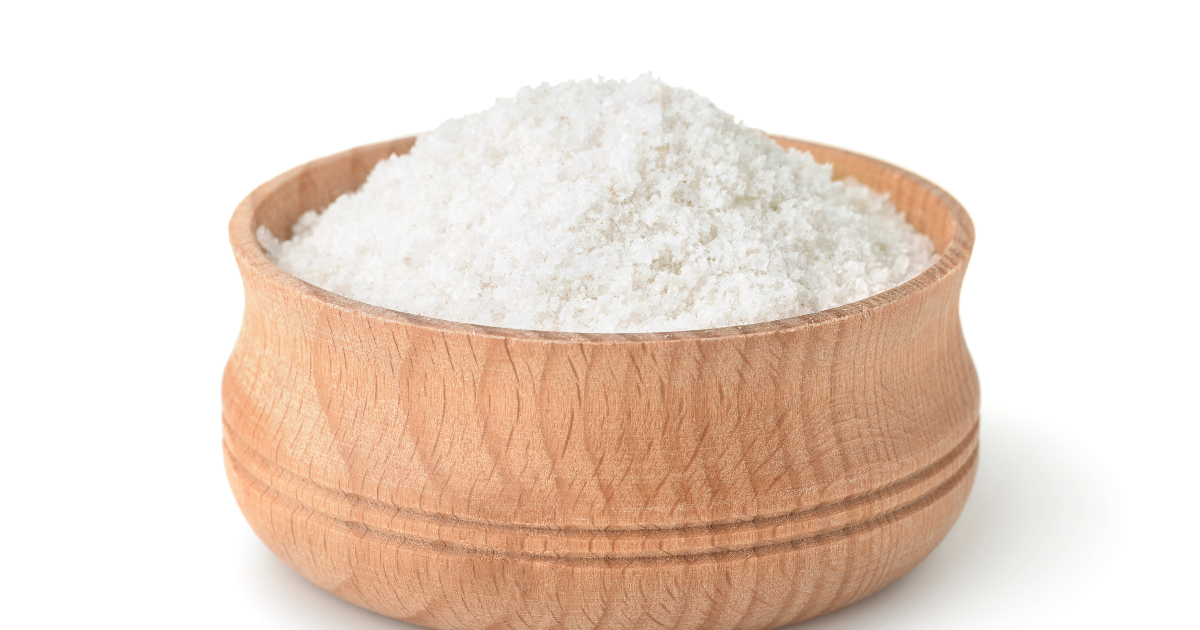For most cheese recipes, salt is a key ingredient. It not only adds flavor but serves several important functions. Many recipes call for something referred to as "cheese salt."

So what exactly is cheese salt and how is it different from kosher salt? Can you use kosher salt for cheesemaking instead?
What Is Cheese Salt?
Cheese salt refers to any non-iodized salt used in cheesemaking. The key requirement is that it does not contain added iodine.
Iodized table salt contains potassium iodide or sodium iodide. The iodine can negatively affect cheese cultures and slow down the aging process. So for optimal results, cheesemakers avoid using iodized salt.
The terms "cheese salt" and "kosher salt" are sometimes used interchangeably when it comes to cheesemaking. Kosher salt meets the non-iodized requirement.
However, cheese salt often comes in a flaky crystalline form while standard kosher salt tends to have larger, coarser grains. The flakes are preferred by some cheesemakers as they can more efficiently draw moisture out of the cheese.
Key Takeaway: Cheese salt is simply a non-iodized pure salt, ideally in a flake form. Any salt containing added iodine can inhibit cultures.
Purpose of Salt in Cheesemaking
It's clear salt-free cheese would lack flavor. But why else is salt so important in cheesemaking? Here are some of the key functions:
- Preservative - Salt helps stop or slow lactic acid bacteria cultures from continuing to ferment lactose into lactic acid. This preserves and protects the cheese.
- Flavour - Sodium from salt enhances flavor compounds already present the cheese.
- Texture - Salt controls moisture levels, causing curds to shrink as the salt draws out whey. This helps develop the final cheese texture.
- Rinds - Dry salting cheese surfaces aids beneficial mold growth to form rinds on aged cheeses.
- Safety - Salt creates an environment inhibiting growth of harmful bacteria.
So in short, salt plays a vital role! Too little salt can leave cheese susceptible to quality issues or spoilage. But too much can also make cheese unpleasantly salty. Proper salting technique is crucial.
Dry Salting vs. Brining Cheese
There are a two primary ways cheesemakers incorporate salt:
Dry salting involves rubbing dry salt evenly over the surface of the cheese. This is often done with bloomy rind cheeses like Camembert to help beneficial molds thrive.
Brining means soaking cheese in a saltwater solution. The cheese absorbs salt from the surrounding brine. Brines are commonly used for semi-hard and hard aged cheeses like cheddar or gouda before pressing.
Brines can be created by fully saturating water with salt to the desired saline concentration. For most brined cheeses, saturation levels range from around 15% up to 22% salt by weight.
Key Takeaway: The two main techniques are either rubbing dry salt onto cheese surfaces or soaking cheese in a saltwater brine solution to absorb salt.
Kosher Salt vs. Cheese Salt
Now that we've covered the background on cheese salt, let's discuss how kosher salt differs and whether it can serve as an acceptable substitute.
Kosher salt gets its name from the Jewish koshering process where it is used to draw out blood from meat. Like cheese salt, kosher salt contains no iodine or anti-caking additives. It has larger irregular flakes than common table salt.
The main potential issue with substitution is that kosher salt grains tend to be larger than cheesemaking salt flakes. The coarser grains don't dissolve and integrate into cheese curds as efficiently.
However, for dry salting cheese surfaces or making brines, the slightly larger crystals pose no problem. They still deliver salt at the same 92% sodium chloride potency level.
So in summary:
- Kosher salt has no iodine - Safe for cheese cultures
- Coarser grains - Not optimal for mixing into cheese curd
- Works for brines/surface salting - Dissolves easily in brines and sticks to cheese surfaces
Therefore, while specially flaked cheese salt is ideal, coarse kosher salt can serve as an effective substitute without any issue.
Key Takeaway: Kosher salt contains no iodine like cheese salt. Its coarser grains work fine for brining or rubbing on cheese but are not as easily integrated into curds.
Salting Soft Cheeses
With soft cheeses like feta, chevre, cream cheese, and ricotta, salt is typically mixed right into the curds:
- Add up to 1 tsp salt per 1/2 pound (8 ounces) of soft cheese
- Evenly distribute and gently fold to integrate
- Start with less salt and adjust to taste
- Use flaked salt if possible for even integration
Since there is no further brining or surface treatment, uniform distribution throughout the cheese is important. The fine flakes dissolve quickly during mixing.
If only larger kosher salt grains are available, first pulverize them into smaller pieces with a mortar and pestle or spice grinder. This will help them incorporate more seamlessly.
Salting Hard Cheeses
Harder aged cheeses like cheddar, gouda, and Swiss often get an initial salting during curd handling. This helps expel moisture before pressing:
- Add approximately 2% salt by weight into milled/cut curds
- Let stand for 10-15 minutes before hooping and pressing
- The salt will draw out whey and firm up the curds
After the cheeses are formed into wheels, they also undergo further salting:
Brining
- Create fully saturated saltwater solution (18-22% salt concentration)
- Submerge wheel for 30-60 minutes per 2 pounds
- Temperature should match aging room (50-55°F)
Surface Salting
- Rub cheese thoroughly with coarse dry salt
- Aim for around 2% salt by weight
- Repeat salting over 1-2 weeks until no visible salt remains
- Target 50-55°F aging temperature
The post-pressing brining or surface salting allows the remaining moisture to slowly equalize within the wheel as salt diffuses inward. This helps form a firm texture capable of supporting growth of beneficial aging molds.
For these steps, the coarse crystals of kosher salt offer no disadvantage over fine cheese salt. Both dissolve readily in brine solutions. And the larger kosher flakes may actually adhere better during rubbing/surface salting.
Kosher Salt Brands
With kosher certification by quality Jewish organizations, major brands like Morton and Diamond Crystal are great go-to sources for additives-free non-iodized kosher salt.
Some artisanal cheesemakers also produce their own hand-harvested versions like Maine Sea Salt. These specialty products can offer unique flavors but the original Dry Dairy Fine Flake salt from Morton or Diamond Crystal work perfectly.
Look for:
- No iodine/iodates
- No anti-caking agents
- Certified kosher markings
- Reputable brands
Matching the grain size (fine vs coarse) to your exact application is the most important factor when selecting a kosher salt brand for your cheese.
FAQs
Why is iodine bad for cheesemaking?
Iodine inhibits the healthy bacterial cultures essential for proper cheesemaking. It can prevent full fermentation by the starter culture and mess up moisture levels. For best results, cheesemakers always use non-iodized salt.
What about sea salt vs kosher salt?
Unrefined sea salt still contains natural iodine levels which may impact cheese cultures. Kosher salt offers reliably iodine-free purity. However, some artisan cheese salt is produced by evaporating seawater and may be used successfully.
Can I use kosher salt for feta/goat cheese?
Yes, you can use kosher salt when making soft brined cheeses like feta or chevre. Just be sure to first grind the coarser grains into a fine texture using a mortar+pestle or spice grinder so it fully incorporates. Flaked cheese salt is easier to integrate but kosher salt works.
Conclusion
While cheese supply shops offer special flaked salt for cheesemaking, don't worry if you don't have any on hand. Kosher salt can serve as an effective alternative without any issues.
Just match the crystal size to your application. For rubbing onto cheese surfaces or making brines, the coarser grains of kosher salt are perfectly fine. To mix into curds, either find fine grained kosher salt or pulverize larger crystals into small pieces first.

